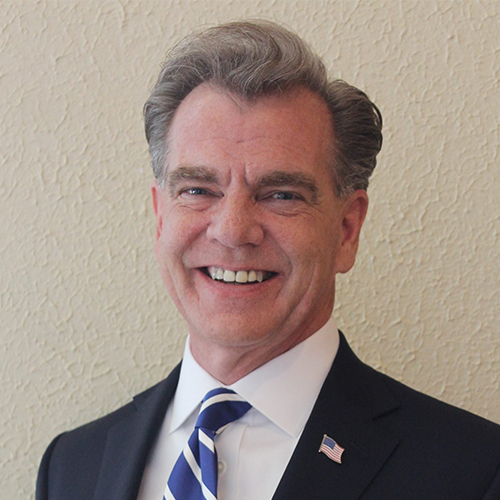In 2019, the American Association of Kidney Patients (AAKP), the nation’s oldest and largest independent kidney organization, declared 2020–2030 as the Decade of the Kidney™.

Paul T. Conway
Vice President, American Association of Kidney Patients
AAKP’s purpose was to focus the public’s attention, and that of national elected and appointed leaders, on the tremendous innovations underway in kidney diagnostics, drugs, and devices. Years of U.S. taxpayer investments in hard science and kidney research have moved America to the position of global leader in kidney precision medicine and breakthrough treatments that delay or stop disease progression.
Yet, in order for these life-saving developments to enter the marketplace and become practically available to patients and their kidney doctors, federal regulators at the U.S. Food and Drug Administration and payers, including officials at the Center for Medicare and Medicaid Assistance (CMS), as well as private insurance executives, must be reminded of the growing kidney disease crisis and the unacceptably high cost of status quo care kidney care.
Americans’ battle with kidney disease
Kidney disease is a healthcare and workforce issue that devastates lives, livelihoods, and families across the nation. Over 37 million Americans have the disease, nearly 600,000 live on dialysis, and over 250,000 live with the miraculous gift of a kidney transplant, the premier treatment. Over half of those with organ failure and living on dialysis will die within five years. The current kidney care system is defined by taxpayer costs in excess of $100 billion per year, abysmally inadequate screening, limited patient choice and access to new therapies, outdated federal reimbursement policies, and the bias of low expectations for patient survival. Ironically, as America outpaces the world in kidney innovation, the federal policies and systems that determine the majority of patient treatments and outcomes have failed to evolve. In the view of patients, the federal approach to kidney disease remains highly reactive and emblematic of a system that lacks imagination and the decisiveness to act, even as the citizens it portends to serve die at unacceptably high rates.
Unfortunately, over half of Americans with kidney failure learn of their condition in an emergency room (ER). Late-stage kidney disease diagnosis defines America’s failure to transcend the status quo, high-mortality kidney care. Late diagnosis is the key driver for high rates of hemodialysis and the growing waitlist for donated kidneys. The scale of human suffering, disability, and dependency is tragic. Sadly, this societal burden could be reduced if the U.S. Preventive Services Task Force (USPSTF) recommended simple, low-cost screening for Americans most at risk for the disease. Yet, despite clear evidence of how diabetes, hypertension, and family histories are accelerating the kidney disease crisis, the USPSTF has failed to take action for over 20 years. AAKP has asked Secretary of Health and Human Services, Robert Kennedy, Jr., to correct the USPSTF failures and to reprioritize kidney disease prevention as a means of saving more lives and reducing patient and U.S. taxpayer burdens. There is no common-sense reason why America can’t be both the world’s leader in kidney medicine and provide its own citizens with a timely disease diagnosis.
Finding a path forward
Kidney medicine is in a golden era, with vast investments and new companies entering into what had once been viewed as a backwater for medical progress and hope. New therapies address the nexus between kidney disease and cardiovascular complications. Other therapies address the risks of severe catheter-related bloodstream infections among dialysis patients and new ways for managing high levels of serum phosphorus, a serious risk. However, restrictive coverage policies imposed by CMS and some Medicare Advantage plans are counterintuitive to improved patient outcomes and impose barriers for expanded access to innovation and long-term cost reductions in kidney care. These must be immediately reversed.
As America outpaces the world in kidney innovation, federal policies that determine patient treatments and life expectancy must evolve. In the view of patients, the federal approach to kidney disease remains emblematic of a bureaucratic system that lacks imagination and the decisiveness to act, even as the citizens it claims to serve die at unacceptably high rates.
In 2019, President Trump signed the Executive Order (E.O.) on “Advancing American Kidney Health,” a policy directive that garnered widespread bipartisan and stakeholder support. The E.O. provided a noncontroversial vision for accelerating innovations in early disease detection, expanding transplant opportunities, and advancing new technologies such as artificial organs and xenotransplants. Improving kidney disease detection and care in America is one policy issue that remains well above the realm of disagreement and divisiveness.
Please, take the time to honor the life of a person you have lost to this disease or on behalf of a patient who is currently suffering. Call Congress and the White House, and ask your elected leaders to accelerate the progress that is already being made in the fight to save lives and livelihoods from kidney disease.

